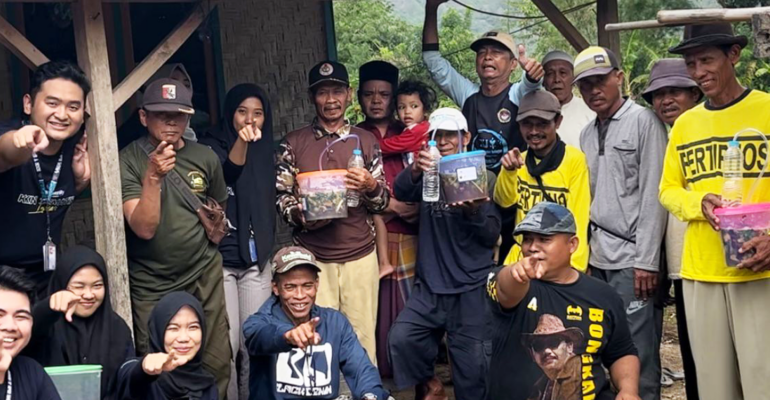IPB University Innovation KKNT Team Transforms Organic Waste into Multifunctional Fertilizer in Mekarsakti Village

The Thematic Real Work Lecture (KKNT) program carried out in Mekarsakti Village, Ciemas District, Sukabumi Regency, presents an innovation in the transformation of organic waste through the manufacture of eco-enzymes as a multifunctional fertilizer. This activity was attended by members of youth organizations and local farmers who are mostly involved in chili and watermelon farming.
Mekarsakti Village Innovation KKNT students not only provided theoretical socialization but also demonstrated the process of making eco-enzymes. The materials used include brown sugar that has been liquefied, organic waste in the form of vegetables and fruits, water, and storage containers that have been modified to prevent explosions due to fermentation gas.
The active involvement of the community was very visible during the activity. The farmers expressed their interest in the use of eco-enzymes to increase their agricultural yields naturally.
As a form of appreciation and to provide hands-on experience, the Mekarsakti Village Innovation KKNT Team distributed five jars of eco-enzyme demonstration results to several farmers. This product will then be monitored by KKNT Inovasi Desa Mekarsakti students every two weeks.
“This means the fertilizer can last a long time,” asked one of the chili farmers present at the eco-enzyme socialization location.
The KKN-T team explained that the longer the eco-enzymes are stored, the better the fertilizer content will be, this is because the longer the eco-enzymes are stored, the better the anaerobic microorganisms in them will be.
“Yes, I hope the program you introduced will benefit the community,” concluded Apep, as the Head of Mekarsakti Village Youth Organization.
It is hoped that the community can independently apply eco-enzyme technology, which is beneficial for agriculture and organic waste management. The program is also expected to inspire other villages to implement similar practices for a clean and sustainable environment. (*/Lp) (IAAS/Aly)



